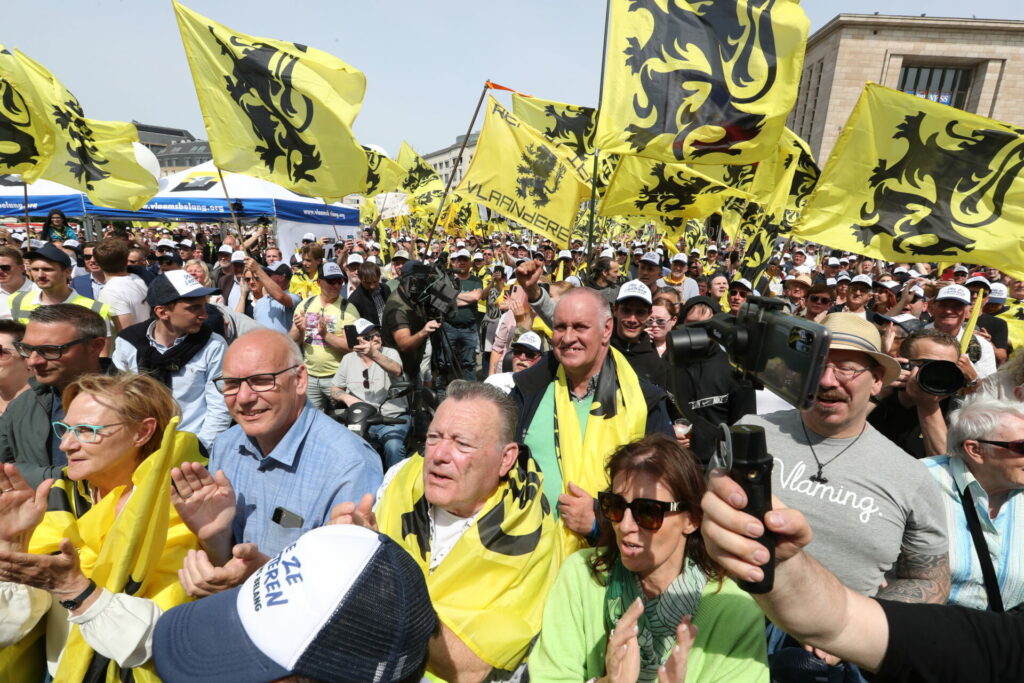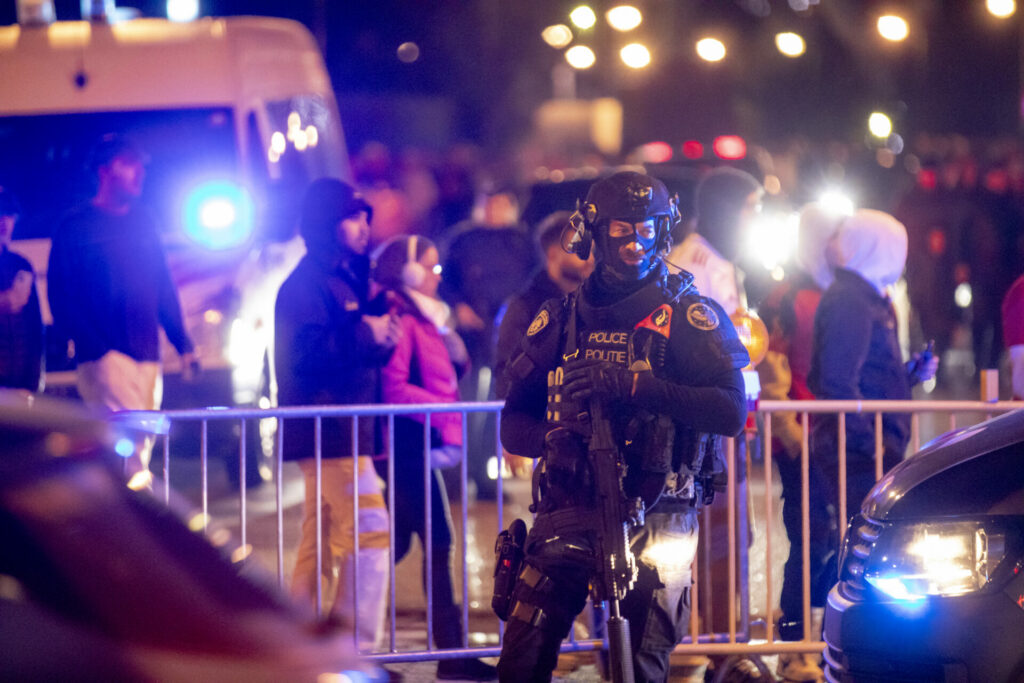How the October 16 terrorist attack could reshape Belgium's political landscape in the upcoming elections;
✔ Boost in support for far-right parties' already observed
✔ Belgian right-wing parties criticise federal government for not deporting the Brussels terrorist after asylum denial
✔ Belgian intelligence knew of the terrorist's criminal history but reportedly overlooked warning signs
Brussels terror attack boosts support for Belgium's far-right

The recent terror attack in Brussels is likely to amplify support for Belgium's far-right parties in the run up to the federal elections next year, an independent expert has claimed.
According to Benjamin Biard, a researcher at the Centre for Sociopolitical Research and Information (CRISP), a Brussels-based think tank, the brutal murder of two Swedish citizens on Monday night by a Tunisian asylum seeker will also make mainstream parties take a tougher stance on immigration.
"The attack will strengthen positions on 'illegal' immigration, but the far-right is already well positioned on this issue," Biard told l'Echo. "And the polls show that the far-right is already standing out in Flanders ahead of the next elections. It now has a subject which it can react to."
However Biard warned that mainstream parties are unlikely to make significant electoral gains if they adopt the anti-immigration rhetoric of Vlaams Belang, a far-right Flemish nationalist party. Such a tactic, he argues, will have limited success in winning voters "because people might consider them as mere pale copies of Vlaams Belang."
Vlaams Belang and N-VA, the governing right-wing Flemish nationalist party, are by far the most popular parties in Flanders. A poll conducted last week by RTBF found that the two parties collectively enjoy the support of 43.7% of the electorate in Belgium's Dutch-speaking region.
No indication of radicalisation
The perpetrator of Monday's attack was 45-year-old Tunisian national Abdeslam Lassoued, a self-proclaimed ISIS member who was undocumented in Belgium ever since his request for asylum was rejected in 2020. Lassoued died after being shot in the chest following a firefight with police at a café near his home in Schaerbeek early on Tuesday morning.
After the attack, Belgian Justice Minister Van Quickenborne informed reporters that Lassoued had previously been convicted of "common legal offences" in Tunisia. He also noted that the Belgian authorities had been aware of Lassoued's criminal past, which included "suspected acts of human trafficking, 'illegal' residence and endangering state security".
Yet Van Quickenborne maintained that Lassoued had not been flagged as a potentially dangerous individual by OCAM (the national body in charge of assessing terror threats) due to a lack of prior terrorism convictions.
"Although he was known to law enforcement, there was no concrete indication of his radicalisation – that's why he was not on the OCAM [terrorist] watchlist."
Ignoring warning signs?
However, subsequent reporting has shown that the Belgian intelligence services almost certainly did have reasons to be concerned about Lassoued. On Tuesday, a spokesperson for the Swedish Migration Agency told AFP that Lassoued has served a prison sentence in Sweden between 2012 and 2014.
The spokesperson also implied that Lassoued was later deported to Italy, where he had first arrived as a migrant from Tunisia in 2011. According to The Guardian, Lassoued was then monitored by Italian intelligence services after being flagged by police in Bologna in 2016 as a potential "radicalised subject". He is believed to have moved to Belgium shortly thereafter.

The site of the shooting on Boulevard d'Ypres. Monday 16 October 2023. Credit: Belga / Hatim Kaghat
Following the attack, right-wing parties denounced the "Vivaldi" coalition Federal Government for not deporting Lassoued after his asylum request was denied.
"Yesterday's terrible attack in Brussels is a direct consequence of the lax migration policy," Vlaams Belang wrote on X (formerly Twitter) on Tuesday. "It is time to actively track down 'illegal' immigrants and deport them from the country. This way, we can finally make our streets safe again!"
N-VA's criticism was equally strong, with federal MP Theo Francken describing Vivaldi's asylum policy as "a disaster". Speaking in Belgium's Chamber of Representatives on Wednesday, Francken said "The tap of 'illegal' migration to Europe is wide open... More agreements with North African countries are needed to block those boats."
Related News
- 'Belgium has been neglecting its security for years', magistrate claims
- Who were the victims of the Brussels terror attack?
- Flemish lion with or without red claws: What's the difference and why does it matter?
There is already some evidence that the Federal Government is adopting the rhetoric of the far-right. On Wednesday, Belgian Prime Minister Alexander De Croo, a member of Flemish liberal party Open VLD, stated that his government needs to implement stricter deportation policies.
"Regarding people who have to return to their country of origin: we should either literally accompany them onto the plane or we should put them in closed centres until they can be expelled."
